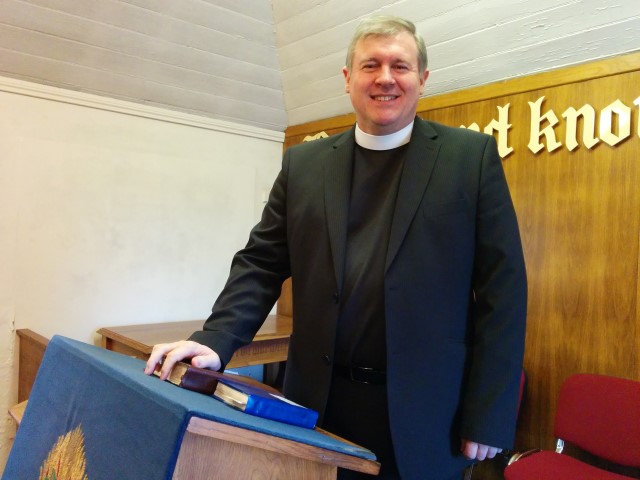Date: MON 8:00 PM 2nd June 2025
Singer: Rev. Fred Greenfield
Preacher: Mr. Colin Maxwell
Bible Reference: Luke 18:10
Two men went up into the temple to pray; the one a Pharisee, and the other a publican.
Sermon Summary: Luke 18:9-14 – The Parable of the Pharisee and the Publican
The sermon, based on Luke 18:9-14, centers on the parable of the Pharisee and the Publican, a story Jesus told to address those who trusted in their own righteousness and despised others. The preacher uses this passage to emphasize the themes of humility, repentance, and the necessity of God’s mercy for salvation, contrasting self-righteous pride with genuine contrition.
Key Points of the Sermon:
- Scriptural Foundation (Luke 18:9-14):
- The parable describes two men who go to the temple to pray: a Pharisee, a religious leader known for strict adherence to the law, and a publican (tax collector), a figure despised in society for collecting taxes for the Romans.
- The Pharisee prays boastfully, thanking God that he is not like sinners (extortioners, unjust, adulterers, or the publican) and listing his good deeds (fasting twice a week, tithing). His prayer is self-centered and lacks humility.
- The publican, standing afar off, humbly refuses to lift his eyes to heaven, beats his chest, and prays simply, “God, be merciful to me, a sinner.”
- Jesus declares that the publican, not the Pharisee, went home justified because “everyone that exalteth himself shall be abased; and he that humbleth himself shall be exalted” (v. 14).
- Context and Interpretation:
- The preacher clarifies that a “publican” in Jesus’ time was a tax collector, not a bartender, as the term might suggest today. Tax collectors were often viewed as traitors and sinners due to their association with Roman authorities.
- The parable is likely based on real-life scenarios, as the preacher suggests Christ’s parables often reflect actual events or observations (e.g., a sower sowing, a lost sheep, a prodigal son). This grounds the story in relatable human experiences.
- The Pharisee’s prayer reflects a common human tendency to rely on self-righteousness—boasting about church attendance, good deeds, or moral superiority—while the publican’s prayer is a model of repentance and dependence on God’s mercy.
- Why We Need Mercy:
- The Nature of Sin: The sermon elaborates on sin’s multifaceted nature to explain why all people need God’s mercy:
- Sin as a Crime: Sin is the transgression of God’s law (1 John 3:4), committed through actions (commission) or neglect of duties (omission). As God’s creatures, all are accountable to His law.
- Sin as Rebellion: Sin is not a mere mistake but high treason against God, the King of kings. The preacher references Athaliah’s cry of “treason” (2 Kings 11) to illustrate how sinners, like traitors, defy God’s authority.
- Sin as Robbery: Sin robs God of His glory by falling short of His standards (Romans 3:23). God calls for our hearts and lives, but sin rebels against His rightful claim.
- Sin as Uncleanness: All sin pollutes the soul, rendering even our best efforts as “filthy rags” (Isaiah 64:6). Unrepentant sinners are left in their filth, like pigs in mire.
- Sin as Vanity: Sin is a deception, a “scam” promising pleasure but delivering sorrow and death (Hebrews 11:25). Its temporary allure leads to eternal consequences.
- Universal Guilt: The sermon stresses that all people, including self-righteous Pharisees, stand guilty before God (Romans 3:19). Even the damned in hell acknowledge God’s just judgment (Revelation 15:3-4). The publican’s cry, “me, a sinner,” reflects the universal need for mercy.
- The Nature of Sin: The sermon elaborates on sin’s multifaceted nature to explain why all people need God’s mercy:
- Who Grants Mercy?:
- Only God, the offended party, has the authority to grant mercy. Human efforts, even those of the holiest saints, cannot atone for sin due to humanity’s total depravity, guilt, and helplessness.
- God’s mercy is made possible through Jesus Christ’s sacrificial death on the cross, where He bore the punishment for sinners (Isaiah 53:5-6). The preacher references historical executions (e.g., Anne Boleyn at the Tower of London) to contrast earthly justice, which punishes traitors, with God’s grace, which offers mercy through Christ’s atonement.
- The sermon emphasizes that Christ died for the ungodly (Romans 5:6), inviting sinners to turn from self-righteousness and seek God’s mercy.
- The Effect of God’s Mercy:
- The publican’s humble prayer was answered: he went home “justified,” meaning his sins were forgiven, and he was declared righteous before God, as if he had never sinned. This justification comes through faith in Christ’s atoning blood (Romans 5:1).
- God is described as “rich in mercy” (Ephesians 2:4) and delighting in showing mercy, unlike human reluctance or inability to help. The angels rejoice when a sinner repents (Luke 15:10).
- The preacher highlights the publican’s repentance, seen in his physical act of smiting his chest, acknowledging his sinful heart as the root of his problem, not external factors like environment or upbringing.
- The Pharisee, by contrast, left the temple unchanged, self-satisfied but unrepentant, closer to judgment than salvation.
- Application and Call to Action:
- The sermon urges listeners to see themselves as God sees them: sinners with deceitful, wicked hearts (Jeremiah 17:9). Without repentance and a new birth, no one can enter God’s kingdom (John 3:3).
- Listeners are encouraged to emulate the publican’s heartfelt cry for mercy, not relying on good works, church attendance, or moral comparisons to others. Formal prayers are insufficient; true repentance requires conviction and faith.
- The preacher invites the unsaved to pray for mercy immediately, emphasizing that God hears and answers such prayers (John 6:37). Justification brings peace with God and assurance of salvation, allowing one to say, “It is well with my soul.”
- For those needing further guidance, the preacher and others are available to clarify or assist after the service.
Key Themes:
- Humility vs. Pride: The parable contrasts the Pharisee’s prideful self-righteousness with the publican’s humble repentance, showing that God exalts the humble and abases the proud.
- Need for Mercy: All are sinners, guilty of crimes against God, and only His mercy through Christ’s sacrifice can justify.
- Power of Repentance: Genuine repentance, acknowledging one’s sinfulness, leads to forgiveness and justification.
- Urgency of Salvation: The sermon calls for immediate response, warning against self-deception or delay that could lead to eternal loss.
Conclusion:
The sermon uses the parable to call sinners to repentance, urging them to reject self-righteousness and seek God’s mercy through faith in Christ. The publican’s simple, heartfelt prayer serves as a model for salvation, promising justification and peace for those who humbly cry out to God. The preacher’s vivid illustrations (e.g., historical treason, the deceit of sin) and scriptural references reinforce the message that only God’s grace can save, transforming sinners into justified saints.
Subscribe to the podcast here:
Spotify Podcasts | Apple Podcasts | Pocket Casts
Email | RSS | more information here








